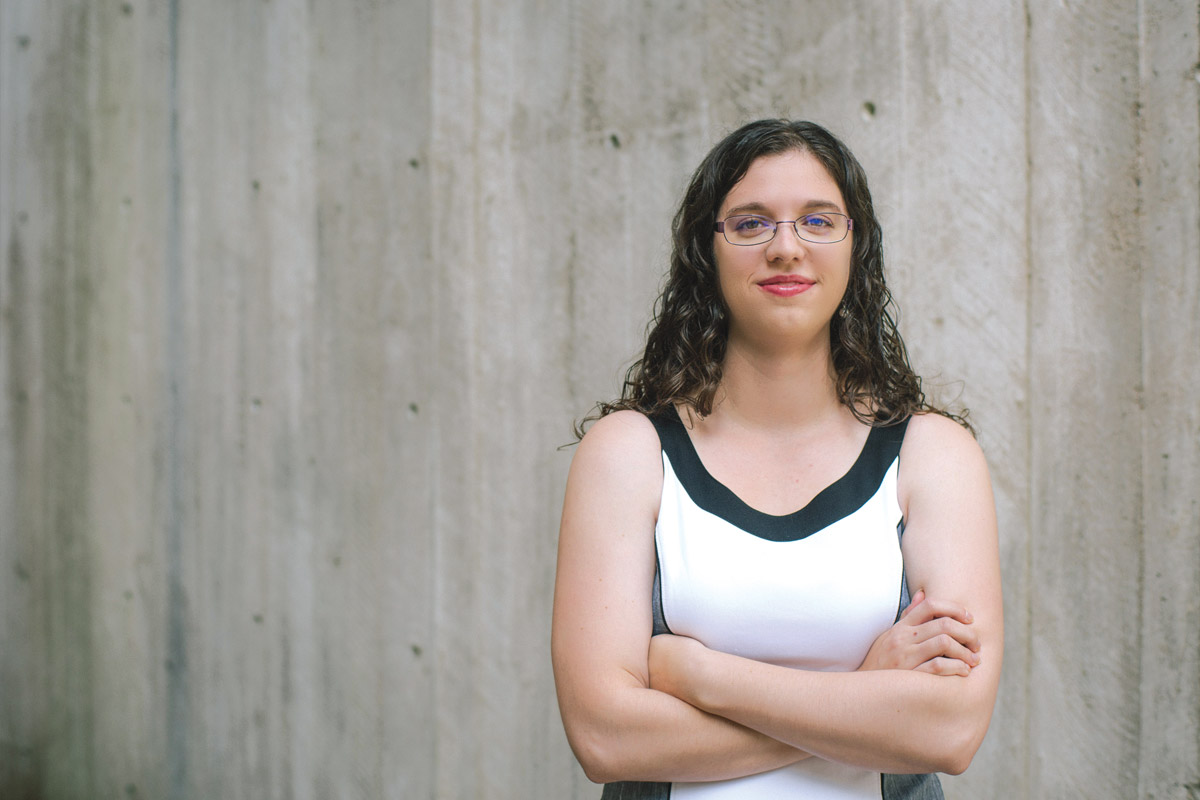Take Nothing for Granted
Early career researcher finds success in grant development

When Heather Krieger decided to take a grant-writing course as an elective in her doctoral degree program, she quickly became intrigued by the strategy necessary to position a research project for funding. And though it would take her more than a year – and several tries – to be awarded her own first grant as an early career researcher, she was definitely up for the challenge.
“Grantsmanship is a marketable skill, so I was very eager to get into the grant-writing process,” says Krieger, a third-year psychology doctoral student. “However, writing for grant funding is very different from academic writing – it requires a different approach, and an enormous amount of planning and patience.”
Krieger enrolled in the relatively new course offered by the Department of Psychology during her first year of study. Throughout the semester, Krieger and her classmates learned the nuts and bolts of proposal development, reviewed successful funding proposals and models, and eventually developed one of their own. While not required to be submitted for actual funding, each student’s proposal went through a mock scoring process, reflective of those implemented by federal funding agencies such as the National Institutes of Health and the National Science Foundation.
“It was super helpful to work from successful funding templates and to go through a very realistic review process,” she says. “Though NIH and NSF provide some funding opportunities for students, these opportunities are limited and extremely competitive. This course was excellent in providing us a chance to experience a challenging process while we were learning it.”
Following the feedback from the course, Krieger chose to change her grant before submitting to a funding agency.
“Reflecting on my first proposal, I realized my concept was too new and, therefore, would probably not be well-understood,” she says. “You have to remember that you have to articulate your idea in a way that is clear and interests an under-caffeinated, overworked reviewer at the end of a long work day. That’s key.”
So Krieger developed a completely separate proposal in support of her dissertation project, which focuses on the influence of social networks on group member alcohol consumption. She submitted the proposal to the National Institute on Alcohol Abuse and Alcoholism (NIAAA) to study social network characteristics surrounding the use of alcohol and proposed a targeted pilot intervention.
It was rejected – but her proposal made it past the first round of scoring to the discussion stage, where NIH reviewers discuss the project and provide valuable feedback to investigators about how to improve their projects.
With six days before the next funding round deadline, Krieger took this advice to heart and reworked her proposal to eliminate her intervention, thus focusing on basic research surrounding alcohol drinking behaviors within her targeted networks.
“It was an intense time. I literally had to drop everything and focus on redeveloping and resubmitting the proposal that week,” she says.
And it was a good thing she did.
This time, Krieger received a perfect score on her funding proposal and was awarded more than $20,000 a year for three years to support her graduate research. Her proposal was one of only 34 NIH F31 Ruth L. Kirschstein National Research Services Awards funded nationally through the NIAAA in 2015.
“I definitely have the grant-writing bug,” Krieger admits after becoming the seventh student from her program to secure funding. “And now my work is the example and model that many future students in the course will learn from.”
Next Story:
Solar Power, Student Power
UH students from computer engineering technology and industrial design programs built and equipped a mobile computer lab fashioned from a shipping container, powered by solar panels.